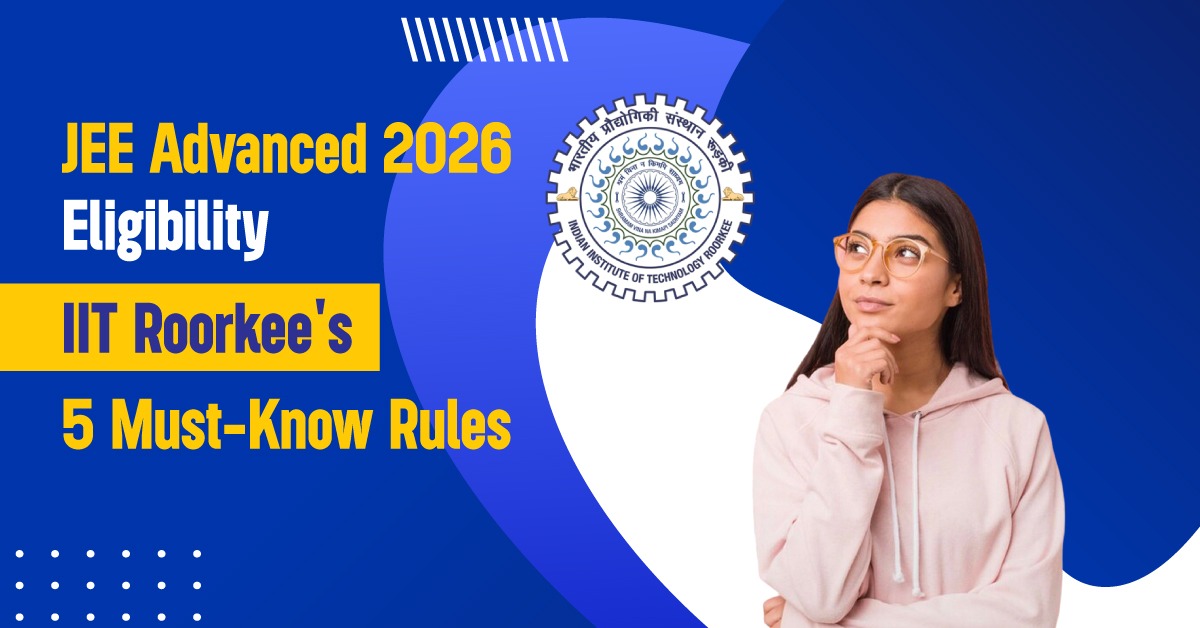
Sitting for the IIT-JEE, which is one of the toughest exams in India, is no less than a mental war.
It often makes the students question what matters more: memorising formulas or conceptual understanding in IIT-JEE preparation. While memorisation might seem like a quick solution, countless success stories prove that conceptual learning is what truly sets IIT-JEE toppers apart.
Every year, nearly 17 lakhs of students appear for JEE Main, dreaming of scoring well in the exam. The bitter fact is, though, only about 18,000 make it to IITs through JEE Advanced. This reflects how intense the competition is and how minimal the chances for error should be.
Benefits of Conceptual Understanding in IIT-JEE Preparation and Why Conceptual Learning Makes the Difference
JEE Advanced doesn’t just test if you can recall a formula; it tests how well you understand the science behind it. Around 75% of its questions require applying concepts in unfamiliar situations—problems that combine multiple ideas from physics, chemistry, and maths. For example, a physics question might ask you to link concepts from mechanics with energy conservation in a new way. Memorising formulas alone won’t help crack such problems.
Students who focus on conceptual understanding develop mental models that help them derive answers, reason logically, and adapt quickly even when the question pattern surprises them.
The Downside of Relying Solely on Memorisation
Relying on memorisation can feel tempting—it’s faster and requires less deep thinking upfront. But the IIT-JEE is designed to challenge this approach. Only about 25% of the exam is direct recall questions; 75% push for application and analysis of concepts.
Psychologically, memorisation taps into “recognition memory”—your brain remembers patterns it has seen before. If the exam twists the question or changes variables even slightly, this memory often fails, leading to panic or wrong guesses under negative marking pressure.
Moreover, without deep understanding, many students forget memorised facts quickly. Studies indicate rote learners retain less than 20% of the information weeks after study, whereas conceptual learners retain nearly double that.
Psychological Impact Memorisation has
Here’s where psychology truly enters: Students who rely on memorisation often experience heightened anxiety during exams. Their confidence depends on perfect recall—and one lapse creates panic, leading to blank-outs or desperate guessing. Negative marking in JEE, designed to punish guesswork, deals a brutal blow to this approach.
Real Techniques that helps students:
- Using mnemonics (“VIBGYOR” for light spectrum or such other for remembering the periodic table; even the funny ones) helps you recall facts, but understanding why sine and cosine relate to triangles means you can solve problems even if you forget the mnemonic.
- Mind mapping Thermodynamics isn’t just about drawing charts—it’s piecing together principles across topics so you’re ready if the JEE asks you to connect internal energy with gas laws in an entirely new way.
- Students taking spaced repetition practice tests improve their scores not just by memory, but by refining their method to solve unfamiliar problems every time—this approach builds adaptability.
Conceptual Learning vs Memorisation in JEE Main and Advanced
It’s important to understand that JEE Main and Advanced, although parts of the same journey, value these skills differently.
JEE Main focuses more on direct application and recognition of formulas, with mostly straightforward questions. Here, memorisation combined with selective conceptual clarity can help you score well and clear this phase for Advanced.
JEE Advanced is the true test of conceptual mastery. The paper demands innovation in problem-solving, using integrated knowledge and reasoning. Aspirants who sharpen their concepts flourish here, while those relying mostly on memorisation struggle to keep pace with the complexity.
What Successful Students Say
Stories from top rankers reflect this truth. Students who credit their success to conceptual clarity often mention how they regularly questioned “why” formulas worked, solved tough problems without shortcuts, and refused to settle for just memorising answers. This helped them face difficult questions with confidence and minimal stress.
How to Build Conceptual Mastery
Here are actionable steps to focus your preparation on concepts, making your IIT-JEE journey effective and sustainable:
- Dive deep into “why” and “how” every formula or theorem works rather than just memorising it.
- Practice a wide variety of problems—especially those that combine topics.
- Use active learning tools like mind maps, teaching others, and drawing diagrams.
- Incorporate regular revisions that focus on understanding, not just recall.
- Use mocks and analyse mistakes, focusing on conceptual gaps.
In a nutshell: What should you choose? Thinking vs. Memorisation
JEE success is a psychological game as much as an academic one. Memorisation makes you feel prepared, but makes you second-guess under pressure. Conceptual clarity gives you flexible confidence—ready for surprise, change, and challenge.
I’m an enthusiastic content writer and a B.Tech CSE-AI student at IGDTUW,committed to producing intelligent and motivational content that bridges the connection between technology, design, and education. I aim to create stories that make complex concepts accessible and inspire students to achieve their objectives, as I have a strong interest in problem-solving and digital storytelling. My emphasis is always on impact, creativity, and clarity, whether I’m writing about design, digital advancements, or JEE preparation.







0 Comments